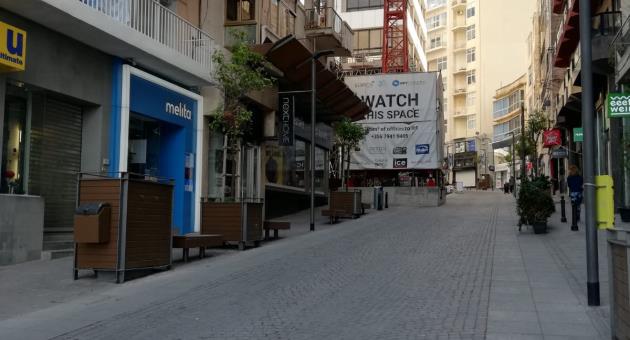COVID-19 IMPACT CONTINUES TO BE HEAVY ON BUSINESSES
Businesses show resilience but numerous concerns still threatening their survival
The Malta Chamber of SMEs has conducted a second study to continue assessing the impact of the Covid-19 pandemic on businesses. As anticipated, just over a month into the pandemic, the situation has so far not improved much. Full implementation of the government support measures are eagerly awaited in order to start making a difference. The study was carried out between the 4th and the 19th of April and 360 SME respondents participated covering all economic sectors.
67% of respondents have indicated suffering what is a complete or close to a complete suspension, with over 75% of their business at a standstill. 10% from specific sectors claim that they are still fully operational. These include pharmaceuticals, food products, telecoms, ICT, construction, machinery and tools, corporate and financial services amongst others.
The primary concern for businesses remains wage costs. The main reason that this remains major concern is that the wage supplement has only started to be distributed. Furthermore, many businesses feel that their business should qualify for the full supplement when in fact it does not. Businesses are now opting for alternative solutions to decrease their losses and maintain their operations. 22% claim that they asked the Department of Industrial and Employment Relations (DIER) for approval on changes to that they made to working agreements with their employees. 12% claim that they have started redundancies to some degree.
24% of the respondents claim that they are concerned with late payments. In fact a tug of war seems to be developing between businesses saying that they plan to enforce credit terms while others are saying that they are stopping all kinds of payments. Whilst we appeal for businesses to be understanding and flexible during these extraordinary times, as an SME Chamber we also appeal to businesses utilize available schemes, including the Covid Guarantee Scheme (CGS). Once fully operational, the CGS will enable payments due to creditors to be made through temporary financing. In this way, businesses will be able to pay their creditors and encourage the functioning of the domestic economy.
Rents so far continue to be a major concern with 25% claiming that they would like to see some form of intervention. The measure of regulating banks to issue moratoria on loan repayments across the board should ease pressure on landlords. Undoubtedly landlords are worried about their own repayments, and therefore this courtesy should be extended to their tenants.
If things stay as they are only 19% of businesses see themselves making it beyond a further 3 months. Hopefully, with the full benefits of the intervention measures and moving closer to the aftermath of Covid, will mean that this percentage increases in the weeks to come. Another 19% is on the other hand is encouraging with businesses thinking of their current and future sustainability by indicating investing more in selling online as well as reinventing their products/services.
As an SME Chamber, our biggest concern is however on how the effects of Covid-19 are negatively affecting people’s mental health, both business owners and their employees. Around 45% of business owners and employees state that their mental health has been surely affected to significantly affected by the effects that the pandemic has had on their enterprises. As businesses representatives we are continuously working to help SMEs work their way through the current difficult months. We continue to strive to easy their worries by suggesting practical solutions as much as possible



